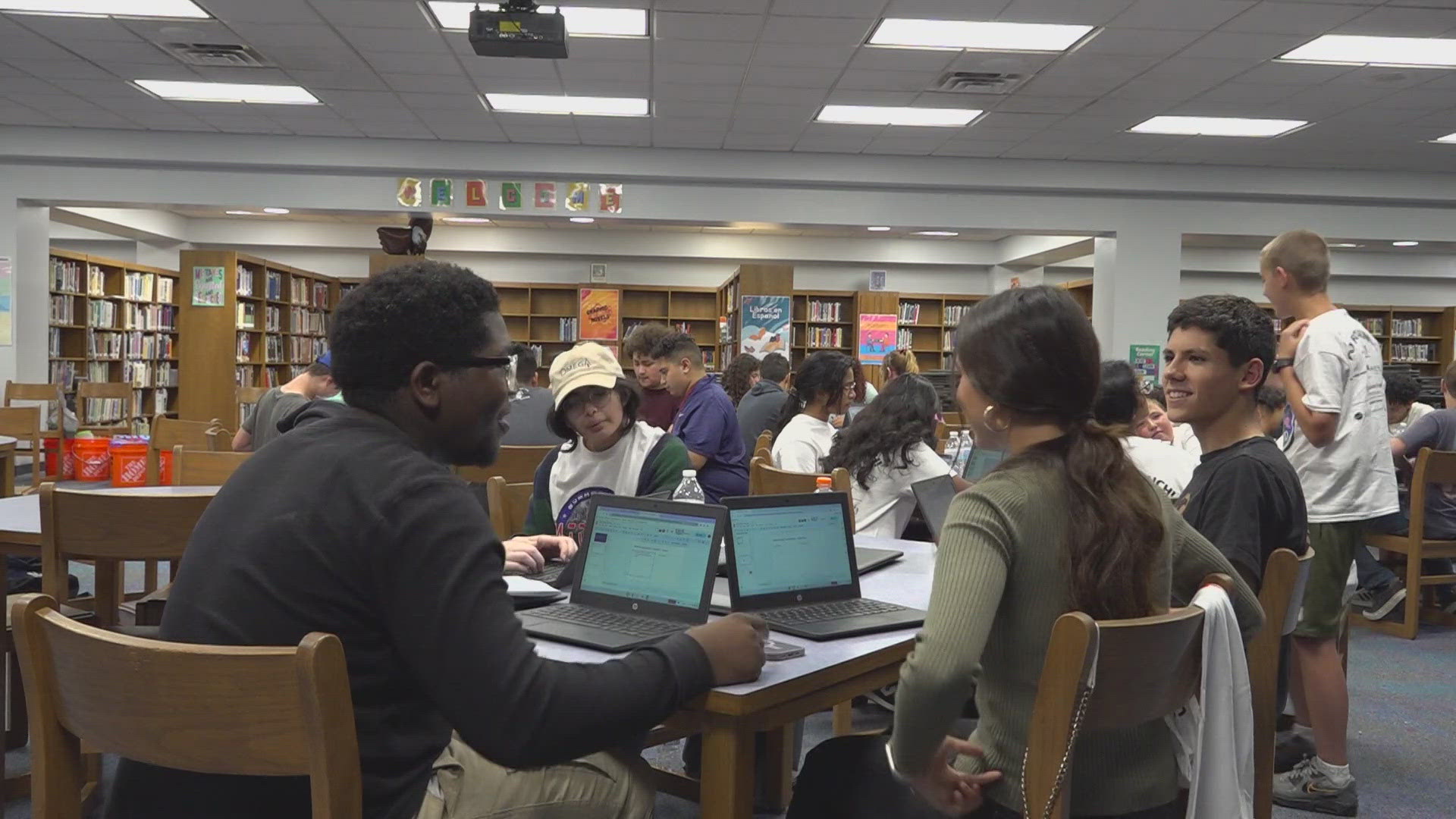MIDLAND, Texas — Higher Orbits brought their "Go-For-Launch" event back to Midland.
The event helps students from grades 8-12 work on developing critical skills they will need in the future workforce, while working side-by-side with a retired NASA astronaut Jim "JR" Reilly.
Students worked in the Abell Junior High Library and were split into seven different teams. They were given a clear goal to work towards from the very start.
“They will design science that can be conducted in microgravity in just two days," Higher Orbits Founder/CEO Michelle Lucas said. "That's something that takes a lot of researchers not even just days or weeks, but decades sometimes to create.”
Teams were given absolute freedom when it came to their designs.
Some, like the group of Team Aire-Borne, chose to do their experiment on insects.
"We're focusing on the effects of zero gravity on ant colonies and how their tunneling is affected by that," Rhys Stanaland said.
Other groups, like Eva Phillips and her group Team Nebulanauts, chose to experiment with bacteria.
“We are working with RizA bacteria to measure the nutrient intake of plants,” Eva said.
While other students chose to try and find new sources of renewable energy.
“We call the experiment 'Refuel,'" Team Pro's Julian Williams said. "They're going to be two bottles of water, one full and one empty. We're going to have tubing in about the middle section. The plan is we're going to have an air compressor to go ahead and squeeze it full water bottle and send water into this empty water bottle.”
Some teams knew what they wanted to do right off the bat. It took other teams some brainstorming.
“We were thinking about doing aquatic things at first, then we kind of drifted into plants, which then we settled on a nutrient-boosting plant. Then we settled on the bacteria,” Eva said.
After the brainstorming sessions, it was onto the research.
“What kind of ants do we need, what kind of things do we need to be made for that container?" Rhys said regarding the types of questions his team needed to answer. "How will they be stored, how they be like taken up to space and how will they be affected?”
When everything was researched, it was all up to the final experiment to see what the final result would be.
“If the experiment does prove to be successful, it can hopefully in the future be used as a refueling system for satellites and rockets," Julian said.
Projects like this not only get students into the mindset of an astronaut or a scientist, but they also allow them to learn in an environment that isn’t just sitting at their desk with the textbook out.
Giving them a creative outlet that will only help them in their future schooling.
“Students can act what they're learning in the classroom and books to what they're actually going to do out in the real world," Lucas said. "That helps keep them motivated to keep studying all these topics as they get into high school and college. and so it's really fun for us to be able to provide kind of that pathway and that conduit.”
One or two winners will be picked from this event and will go on to the finals. Two more events will be held in Midland. The winners from each event will then compete against each other, and the overall winner will then have their experiment sent to the International Space Station.

